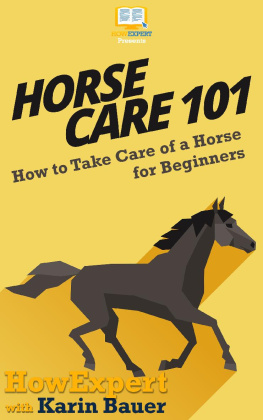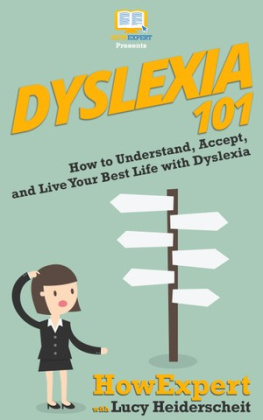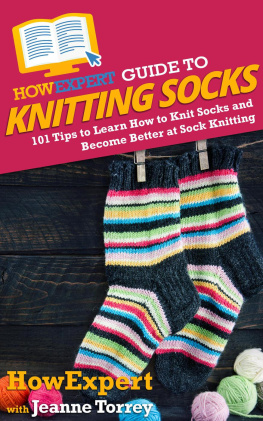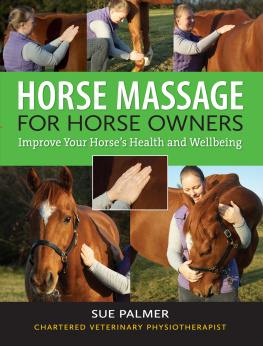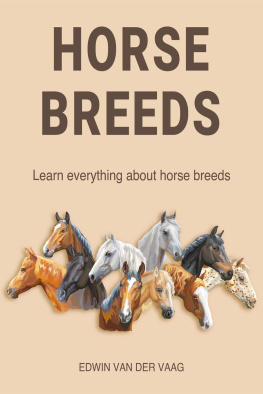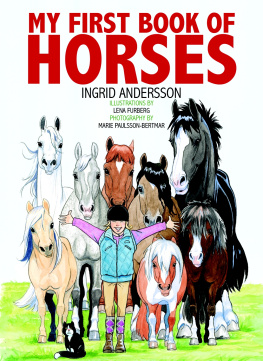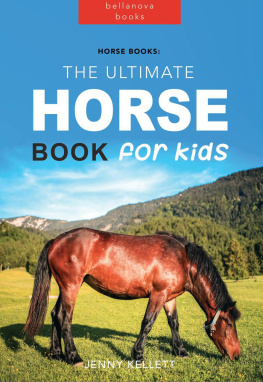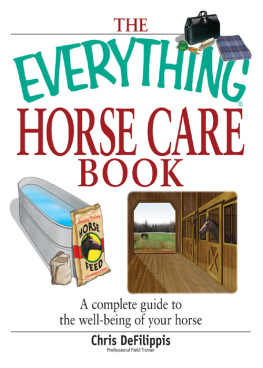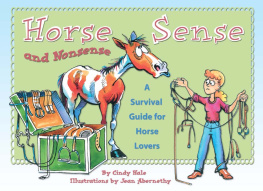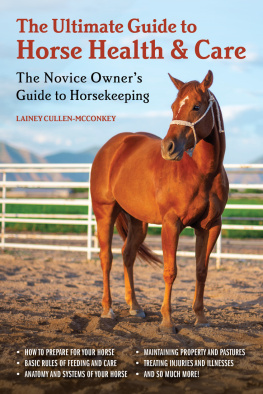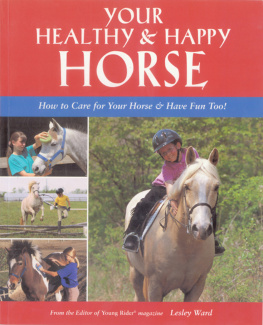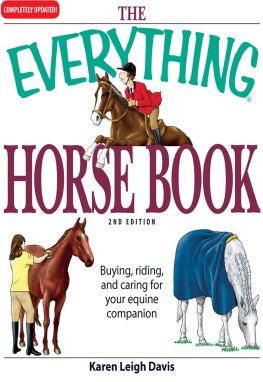HowExpert Presents
Horse Care 101
How to Take Care of a Horse for Beginners
HowExpert with Karin Bauer
Copyright HowExpert
www.HowExpert.com
For more tips related to this topic, visit HowExpert.com/horse .
Recommended Resources
- HowExpert.com Quick How To Guides on All Topics from A to Z by Everyday Experts.
- HowExpert.com/free Free HowExpert Email Newsletter.
- HowExpert.com/books HowExpert Books
- HowExpert.com/courses HowExpert Courses
- HowExpert.com/clothing HowExpert Clothing
- HowExpert.com/membership HowExpert Membership Site
- HowExpert.com/affiliates HowExpert Affiliate Program
- HowExpert.com/writers Write About Your #1 Passion/Knowledge/Expertise & Become a HowExpert Author.
- HowExpert.com/resources Additional HowExpert Recommended Resources
- YouTube.com/HowExpert Subscribe to HowExpert YouTube.
- Instagram.com/HowExpert Follow HowExpert on Instagram.
- Facebook.com/HowExpert Follow HowExpert on Facebook.
Copyright, Legal Notice and Disclaimer:
Copyright by HowExpert (OWNED BY HOT METHODS). All Rights Reserved Worldwide. No part of this publication may be reproduced in any form or by any means, including scanning, photocopying, or otherwise without prior written permission of the copyright holder.
Disclaimer and Terms of Use: Please note that much of this publication is based on personal experience and anecdotal evidence. Although the author and publisher have made every reasonable attempt to achieve complete accuracy of the content in this Guide, they assume no responsibility for errors or omissions. Also, you should use this information as you see fit, and at your own risk. Your particular situation may not be exactly suited to the examples illustrated here; in fact, it's likely that they won't be the same, and you should adjust your use of the information and recommendations accordingly.
The author and publisher do not warrant the performance, effectiveness or applicability of any sites listed or linked to in this book. All links are for information purposes only and are not warranted for content, accuracy or any other implied or explicit purpose.
Any trademarks, service marks, product names or named features are assumed to be the property of their respective owners, and are used only for reference. There is no implied endorsement if we use one of these terms.
No part of this book may be reproduced, stored in a retrieval system, or transmitted by any other means: electronic, mechanical, photocopying, recording, or otherwise, without the prior written permission of the author.
Any violation by stealing this Book or downloading or sharing it illegally will be prosecuted by lawyers to the fullest extent. This publication is protected under the US Copyright Act of 1976 and all other applicable international, federal, state and local LAWS and all rights are reserved, including resale rights: you are not allowed to give or sell this Guide to anyone else.
This publication is designed to provide accurate and authoritative information with regard to the subject matter covered. It is sold with the understanding that the authors and publishers are not engaged in rendering legal, financial, or other professional advice. laws and practices often vary from state to state and if legal or other expert assistance is required, the services of a professional should be sought. the authors and publisher specifically disclaim any liability that is incurred from the use or application of the contents of this book.
Copyright by HOWEXPERT (OWNED BY HOT METHODS)
ALL RIGHTS RESERVED WORLDWIDE.
Table of Contents
Chapter 1: Bringing Your Equine Companion Home
Introducing Your Horse to His New Home
I can write this article based on my own experience. When I was 13 years old, my parents bought me a pinto gelding named Dexter. Dexters previous owners kept him outside, then when we bought him and brought him to the stable, we wondered how Dexter (and we) would handle the transition. We knew this was something that would take time and work.
Your new equine companion has arrived. He is nervous and is looking around. He does not know where he is at or what is going to happen to him. You must get him adjusted. What do you do?
One important piece of information is that you speak with the former owner on how much hay, grain (and what type) and pasture time the horse gets. Sudden changes in a horses food and turn out/stall time can cause serious complications.
I will explain an experience based on owning Dexter. Because Dexter was kept outside, and we moved him to a box stall, the transition took a toll on him. Dexter was quite ill. Perhaps it was the stress of being in a new environment or it was the new food. Before buying Dexter, he was never in a box stall. After time, tender loving care and veterinary care, Dexter recovered, and was more energetic than ever. When it was safe to ride him again, Dexter was happy and playful, and bucked me off! I did not get hurt but I was happy Dexter recovered and was in good spirits.
A transition as described above can cause a horse to fall ill. When transitioning a completely outdoor horse to a box stall, it must be done gradually. Although Dexter took to the box stall quite well quickly, it does not mean every horse will.
A Place to Call Home
You cannot read a horses mind, so you never know if he wants to move or not. If the horse could talk to you, possibly he would say I dont want to move! I like it here. I have many friends. I dont want to leave them. Many people, especially children who relocate to a new neighborhood and school, can feel that way. Just like how the children miss their friends from their old neighborhood, the horse feels the same way when he is moved to a new farm.
However, as I explained earlier about Dexter, sometimes a relocated horse becomes happier in their new home. You never know what the result will be until you actually go through with it. Horses are individuals just like humans. Sometimes when humans relocate, they become happier in their new homes, while others want to move back to their old home.
Although Dexter adjusted to his new home rather quick, some horses can get homesick and take a long time to adjust to their new home.
While in many cases, humans relocate voluntarily. The horse probably did not make the choice to relocate. Horses are usually more resistant to change than humans are. That is why this event is more stressful for him that it is for you. You understand what is going on. He does not.
If you buy a horse that went through some tormenting and mistreatment, then you are doing a good thing by relocating him. Still, the horse does not know what he will go through. He will not know whether or not he will get good treatment in his new home. So, it is up to you to show the horse that you are going to give him a good, loving home.
Dexter went through some mistreatment by his previous owners. My parents and I worked on (and it took some work) showing him that not all humans are evil. Dexter became a friendly, trusting horse after a long time of tender loving care.
Horses do not know the do not judge all on the act of one story. A mistreated horse can view all humans as a threat.
Stop Stressing Me Out!
Just like humans, stress takes a toll on a horses mental and physical health. The horse does not know how to relieve his own anxiety, so you have to do it for him.
Horses help humans relieve stress. Riding and looking after horses can help ease stress on humans, but what about the other way around? You can give your horse a stress relief counseling session. Besides from the horse not being able to talk to you, you can counsel your horse like another human. No, horses cannot practice yoga or meditation. Although it would be nice if they could!
Next page
